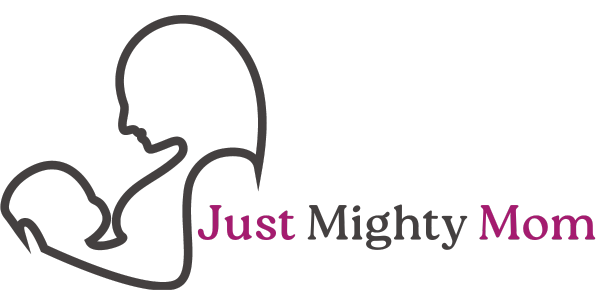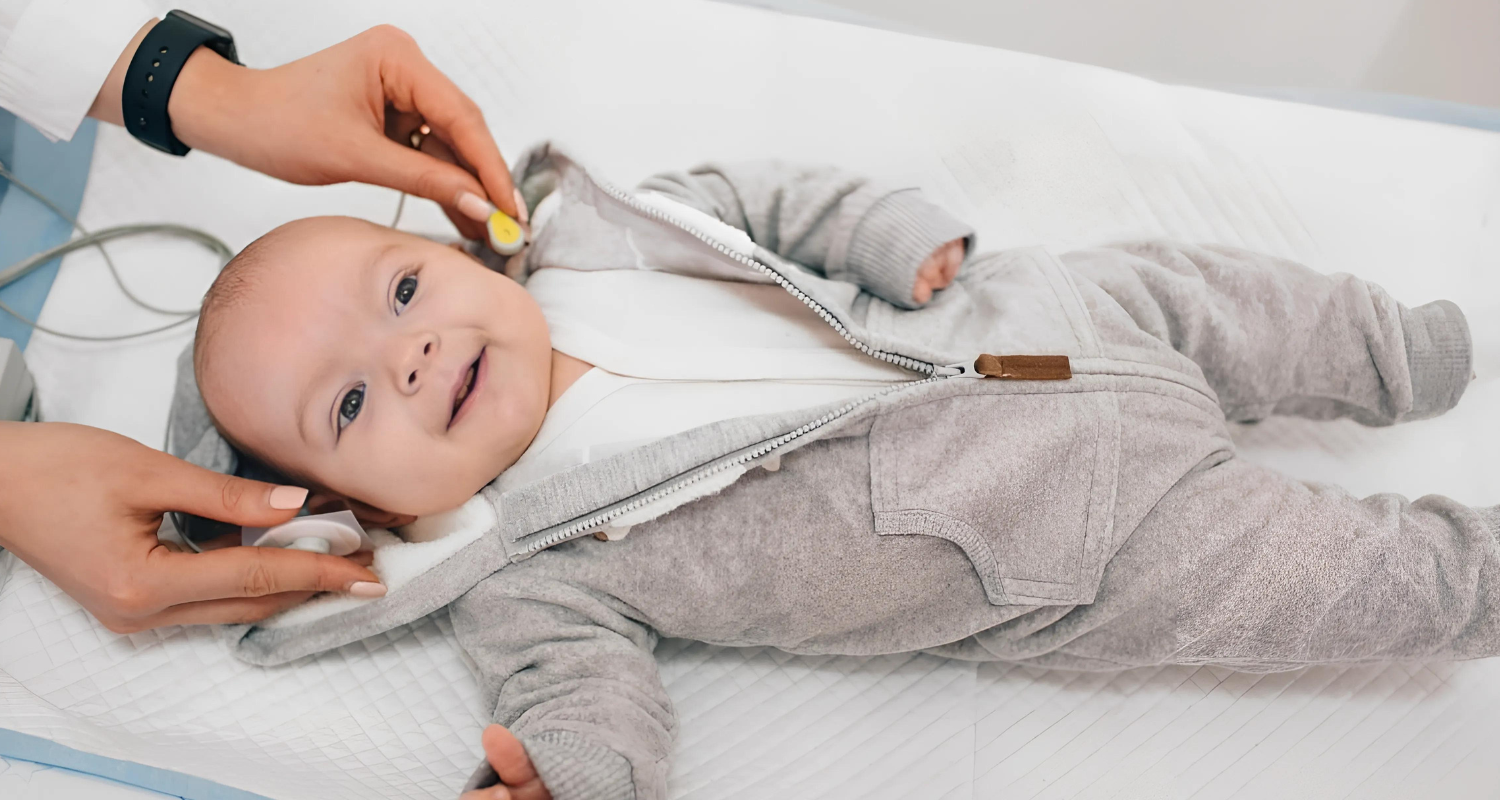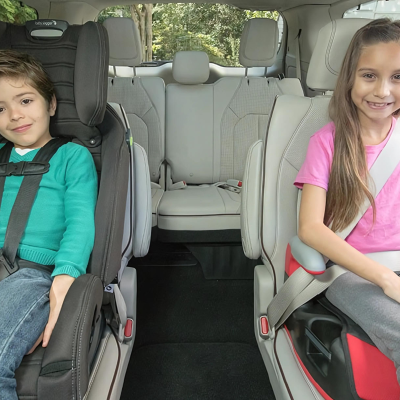The journey of a baby’s auditory development begins long before birth and continues to evolve significantly during the first year of life. Understanding when and how babies start hearing after birth provides valuable insights into their early sensory experiences and helps parents and caregivers support their child’s hearing development effectively. This comprehensive guide explores the stages of auditory development, key milestones, and practical tips for fostering optimal hearing and communication skills.
Understanding Auditory Development in Babies
Auditory development is a crucial aspect of a baby’s overall sensory growth. From the initial stages of hearing in the womb to the development of language and communication skills, each phase of auditory development plays a vital role in shaping a baby’s ability to interact with their environment and caregivers.
Hearing Before Birth
In Utero Hearing: Research shows that babies can hear sounds while in the womb. By the 25th week of gestation, a fetus can respond to external noises, such as the sound of a mother’s voice or music played near the belly. The sounds are muffled due to the amniotic fluid and the uterine wall, but they can still be perceived.
Prenatal Sensitivity: Fetuses are particularly sensitive to low-frequency sounds and can recognize familiar voices and music. This early exposure to auditory stimuli plays a role in postnatal recognition and bonding.
Auditory Development After Birth
The First Few Days
Immediate Post-Birth
Initial Hearing: Newborns are born with functional ears and can hear sounds immediately after birth. However, their hearing is not fully developed, and their ability to localize and differentiate sounds is limited.
Newborn Hearing Screening: Most hospitals perform a hearing screening test on newborns shortly after birth. This test, known as the newborn hearing screening, is crucial for detecting any potential hearing impairments early on.
Early Reactions
Startle Reflex: In the first few days of life, babies may exhibit a startle reflex in response to sudden, loud noises. This reflex is an early indicator of auditory sensitivity and awareness.
Recognition of Familiar Sounds: Babies may show a preference for familiar sounds, such as their mother’s voice or lullabies they heard in the womb. They may turn their head or calm down in response to these familiar auditory stimuli.
The First Month
Hearing Development
Hearing Range: By the end of the first month, babies’ hearing improves, and they begin to respond to a wider range of sounds. They can start to differentiate between different types of sounds and voices.
Auditory Localization: While still limited, babies begin to develop the ability to localize sounds, turning their heads toward the direction of familiar noises or voices.
Interactions with Caregivers
Sound Recognition: Babies start to recognize and respond to their caregiver’s voice. They may show increased interest or calm down when they hear their parent’s voice, demonstrating the importance of auditory interaction for bonding.
Engagement: Simple auditory stimuli, such as lullabies or gentle talking, can help engage and soothe a newborn. These interactions are essential for fostering early auditory development and communication.
2 to 3 Months
Advancing Hearing Skills
Auditory Discrimination: By 2 to 3 months, babies’ auditory discrimination improves, allowing them to distinguish between different sounds and tones more effectively. They may respond to a wider variety of sounds and noises.
Sound Localization: Babies become better at localizing sounds, turning their head or eyes toward the source of a sound. This skill is an early sign of developing spatial awareness and auditory processing.
Interactive Play
Responding to Voices: Babies become more responsive to voices and may engage in vocalizations, such as cooing or babbling, in response to auditory stimuli. This interaction is crucial for language development.
Listening to Music and Sounds: Babies show interest in different types of music and sounds. Providing a range of auditory experiences, such as singing, playing music, or using toys with sound features, supports auditory development.
4 to 6 Months
Enhanced Auditory Perception
Sound Differentiation: By 4 to 6 months, babies can differentiate between a broader range of sounds, including more subtle variations in pitch and tone. They can recognize familiar sounds and voices with greater accuracy.
Auditory Memory: Babies start to develop auditory memory, remembering and responding to sounds and melodies they have heard previously. This ability supports their understanding of patterns and language.
Communication Skills
Babbling: Vocalization becomes more varied and intentional, with babies experimenting with different sounds and syllables. This babbling is an important precursor to language development.
Interactive Communication: Babies engage more actively in vocal exchanges with caregivers, responding to speech and imitating sounds. This interaction promotes language acquisition and social bonding.
7 to 12 Months
Refined Auditory Abilities
Advanced Sound Localization: By 7 to 12 months, babies exhibit more precise sound localization skills, turning toward sounds and voices with greater accuracy. They can identify the source of a sound and respond accordingly.
Understanding of Speech: Babies start to understand simple words and phrases, especially those related to routine activities and familiar objects. They may recognize their name and respond to familiar commands or questions.
Language Development
First Words: Many babies say their first words between 9 and 12 months, marking a significant milestone in language development. Their ability to connect sounds with meanings reflects their growing auditory and cognitive skills.
Social Interaction: Babies become more adept at using their auditory skills to engage with others, participating in interactive games and responding to social cues. This interaction fosters further language and communication development.
Supporting Your Baby’s Auditory Development
To promote healthy auditory development and support your baby’s hearing abilities, consider the following practices:
Creating a Stimulating Environment
Engage in Conversations: Talk to your baby regularly, using a warm and engaging tone. This interaction helps develop their auditory processing and language skills.
Read Aloud: Reading to your baby from an early age introduces them to the rhythms and patterns of language, fostering auditory and cognitive development.
Play Music and Sounds: Provide a variety of auditory experiences, such as playing different types of music or using toys that produce sounds. This exposure supports auditory discrimination and memory.
Monitoring Hearing Health
Newborn Hearing Screening: Ensure that your baby undergoes a hearing screening shortly after birth to detect any potential hearing issues early on.
Regular Check-ups: Schedule regular pediatric check-ups to monitor your baby’s hearing and overall development. If you have concerns about their hearing, consult with an audiologist or pediatrician.
Responding to Auditory Milestones
Encourage Vocalization: Respond to your baby’s vocalizations with positive reinforcement and engage in “conversation” through cooing and babbling. This interaction supports language development and auditory processing.
Facilitate Interaction: Create opportunities for your baby to interact with others, including playdates and social activities. These interactions help develop social and auditory skills.
Signs of Hearing Issues in Babies
While most babies develop normal hearing, it’s important to be aware of potential signs of hearing issues. Early detection and intervention can address any problems and support optimal development.
Signs to Watch For
Lack of Response to Sounds: If your baby does not respond to loud noises or familiar voices, it may indicate a hearing issue.
Delayed Vocalization: Delayed or minimal vocalization, such as cooing or babbling, could be a sign of auditory or speech development concerns.
Difficulty Localizing Sounds: If your baby has difficulty turning their head or eyes toward the source of a sound, it may suggest issues with sound localization or auditory processing.
When to Seek Professional Help
Consult an Audiologist: If you notice any signs of hearing issues or have concerns about your baby’s auditory development, consult with an audiologist or pediatrician for a thorough evaluation.
Follow Recommendations: Follow any recommendations or referrals provided by healthcare professionals to ensure that your baby receives appropriate care and support.
Conclusion
The development of hearing in babies is a remarkable process that unfolds from the prenatal stage through the first year of life. From initial responses to familiar sounds to the development of language and communication skills, each stage of auditory development plays a critical role in shaping your baby’s sensory experiences and interactions with the world.
By understanding the milestones of auditory development and providing a stimulating environment, you can support your baby’s hearing and communication skills effectively. Regular monitoring and early intervention, if needed, ensure that any potential hearing issues are addressed promptly, allowing your baby to thrive in their auditory and cognitive development.
As you support your baby’s journey toward optimal hearing, celebrate each milestone and cherish the opportunity to engage with them through the sounds and experiences that enrich their world.




